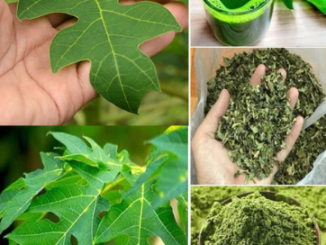In a world that seems to change overnight, one thing remains constant—the need for a reliable and sustainable food supply. Canned foods have been a go-to for many households, thanks to their convenience, affordability, and impressive shelf life. But not all canned foods are created equal when it comes to longevity. While most come with “best by” or “use by” dates, some canned items have the potential to last indefinitely. Whether you’re building an emergency pantry or just want peace of mind, we’ve got you covered. Here’s a deep dive into 15 canned foods that never expire, offering both practicality and nutrition for any occasion.
Understanding Expiration Dates on Canned Goods
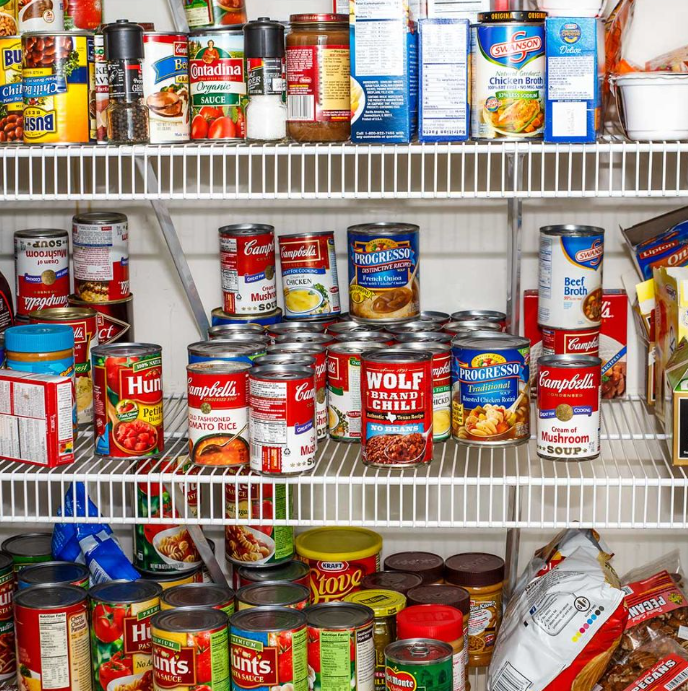
Before we get into the specifics, it’s important to clarify what expiration dates really mean. In most cases, expiration dates, or “best by” dates, refer to the peak period for flavor and texture, not necessarily safety. Canned goods, in particular, are often safe to eat well beyond their printed expiration dates, provided they’ve been stored correctly. The key factor is that they’re sealed in airtight containers and undergo a sterilization process during manufacturing that kills bacteria, preserving the food for the long term.
Why Some Canned Foods Have an Indefinite Shelf Life
Certain foods possess unique characteristics that allow them to last indefinitely. These foods often have low moisture content, a high concentration of preservatives like salt or sugar, or naturally occurring properties that deter bacterial growth. While their flavor and texture may shift slightly over time, these items remain safe for consumption.
Let’s explore the factors that make these canned foods stand the test of time and why they belong in your pantry.
Factors That Ensure the Longevity of Canned Foods
Several factors contribute to the long shelf life of some canned goods. Key among these is the airtight seal that prevents external contaminants from entering the can. In addition, the canning process itself involves sterilization techniques that eliminate bacteria and enzymes responsible for spoilage. The lack of oxygen inside the can further reduces the chance of decay.
- Airtight Sealing: Ensures that bacteria and microorganisms can’t infiltrate the contents.
- Sterilization: The high-heat process during canning kills harmful bacteria and enzymes.
- Preservatives: Natural preservatives, such as sugar, salt, and acids, enhance the longevity of food.
How to Properly Store Canned Foods for Maximum Longevity
The way you store your canned goods plays a critical role in ensuring they stay safe and edible for the long haul. Ideally, canned items should be kept in a cool, dry place away from direct sunlight or temperature fluctuations. Damaged or dented cans can compromise the seal, leading to spoilage or contamination. Make it a habit to inspect your stored goods regularly, checking for any signs of corrosion, bulging, or leaking, which are sure indicators that the can’s contents have been compromised.
Storage Tips for Maximum Longevity:
- Store in a cool, dry environment.
- Keep cans away from direct sunlight and heat sources.
- Avoid denting or damaging the cans.
- Regularly inspect for corrosion, bulging, or leaks.
Potential Risks of Consuming Expired Canned Foods
Even though many canned foods can last indefinitely, there are risks associated with consuming compromised products. A damaged can may expose food to bacteria that can lead to foodborne illnesses. Always inspect the can for signs of spoilage, such as a foul odor, discoloration, or a bulging lid. If in doubt, it’s better to be safe than sorry—discard any questionable cans immediately.
Health Benefits of Non-Perishable Canned Foods
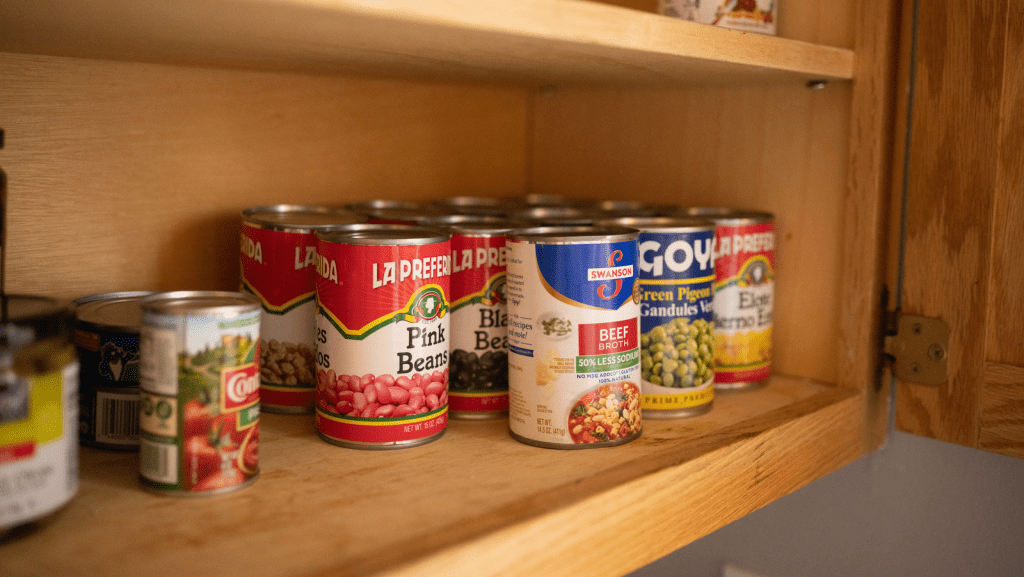
Beyond their longevity, canned foods also offer an array of health benefits. They often retain most of their nutritional content during the canning process, ensuring that essential vitamins and minerals remain intact. In times when fresh produce is unavailable or limited, canned foods provide a dependable source of nourishment. These long-lasting pantry staples make it easy to maintain a balanced diet, even in emergency situations.
Canned Foods Versus Fresh Foods: Nutritional Comparisons
While fresh foods generally have superior flavor and texture, canned foods can hold their own in the nutritional department. The canning process locks in nutrients, sometimes resulting in higher levels of certain vitamins and minerals than you’d find in their fresh counterparts. However, it’s important to watch out for added sodium or sugar in some canned products, as these can impact your health if consumed in large amounts.
The Top 15 Canned Foods That Never Expire
When it comes to stockpiling food for long periods, not all foods are built to last. Here are 15 canned items that, when stored properly, have the potential to last indefinitely:
1. Honey: The Eternal Sweetener
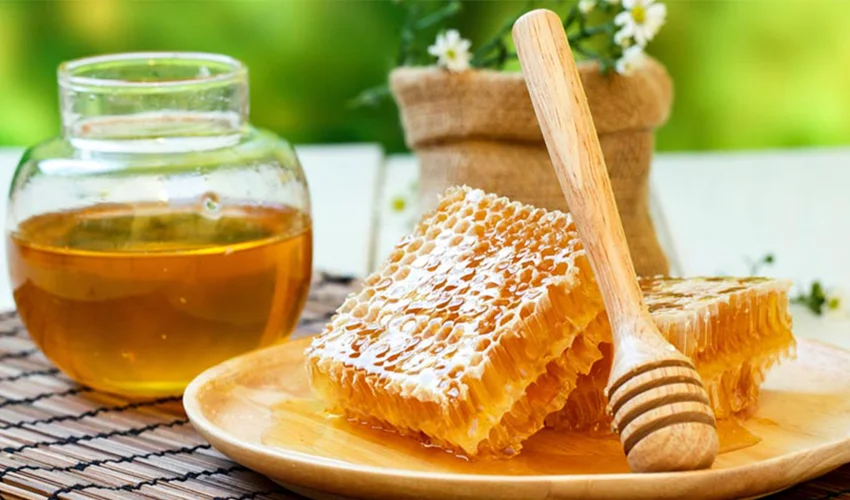
Honey is one of the most remarkable food products in existence. It’s known for its longevity and can last indefinitely thanks to its low moisture content and high acidity, which make it an inhospitable environment for bacteria. Over time, honey may crystallize, but this doesn’t affect its safety. Simply warm it up to return it to its liquid form.
2. White Rice: The Long-Lasting Staple
While white rice isn’t technically canned, it’s often stored in airtight containers and can last indefinitely when kept dry. Its low moisture content and lack of oils make it highly resistant to spoilage. It’s a versatile food that pairs well with many meals, making it a perfect addition to any long-term food storage plan.
3. Dried Beans: The Protein Powerhouse
Dried beans, when stored in sealed containers, can last virtually forever. They are rich in protein and fiber, making them a nutritious and filling option for meals. Just be sure to soak and cook them properly for the best texture and taste.
4. Pure Maple Syrup: Nature’s Sweet Preserver
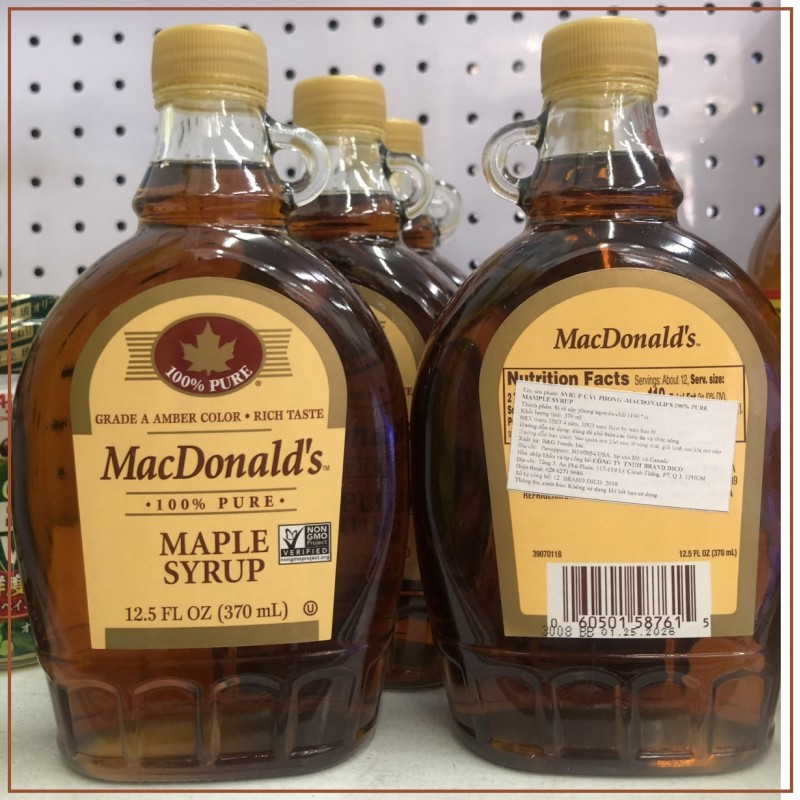
Pure maple syrup is another natural food that can last indefinitely when stored in a sealed container. Its high sugar content acts as a natural preservative, and it’s unlikely to spoil. Once opened, refrigerating maple syrup extends its shelf life.
5. Soy Sauce: The Salty Savior
Thanks to its high salt content, soy sauce can last indefinitely when unopened. Salt is a natural preservative, and soy sauce is an essential condiment that adds flavor to countless dishes. Once opened, it should be refrigerated to maintain quality.
6. Hardtack: Historical Survival Food
Hardtack is a type of dry biscuit that has been a staple for soldiers and sailors for centuries. Its low moisture content makes it virtually impossible to spoil, and with proper storage, it can last indefinitely.
7. Pemmican: The Indigenous Superfood
Pemmican is a traditional food made from dried meat, fat, and sometimes berries. Its high fat content and dried nature give it an incredibly long shelf life. It was used by Native Americans and early explorers as a high-energy food that could last for decades.
8. Pink Himalayan Salt: The Mineral Marvel
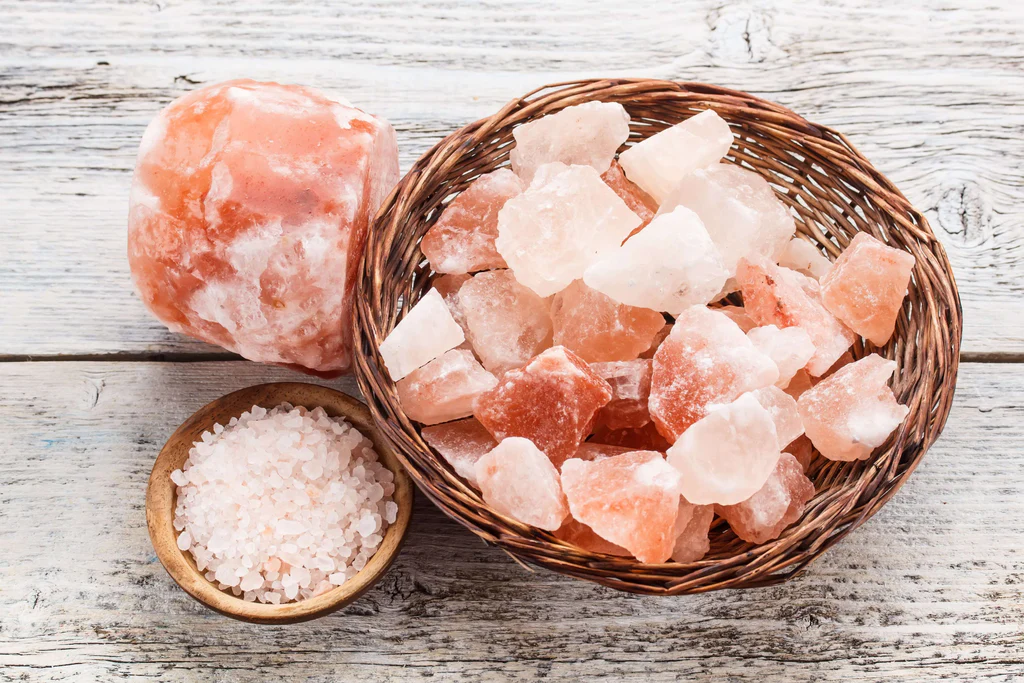
Salt, in general, has no expiration date, but Pink Himalayan salt, in particular, is known for its purity and mineral content. It doesn’t expire and can be stored for an indefinite period. Use it in your cooking or as a natural preservative.
9. Ghee: Clarified Butter with a Twist
Ghee, or clarified butter, can last indefinitely when stored properly. The process of removing milk solids from butter gives ghee a long shelf life, unlike regular butter which spoils quickly.
10. Sugar: Sweet and Sturdy
Sugar, much like salt, never spoils. Its low moisture content prevents bacteria from thriving. Store it in an airtight container to prevent it from clumping or absorbing moisture from the environment.
11. Powdered Milk: A Long-Lasting Dairy Option
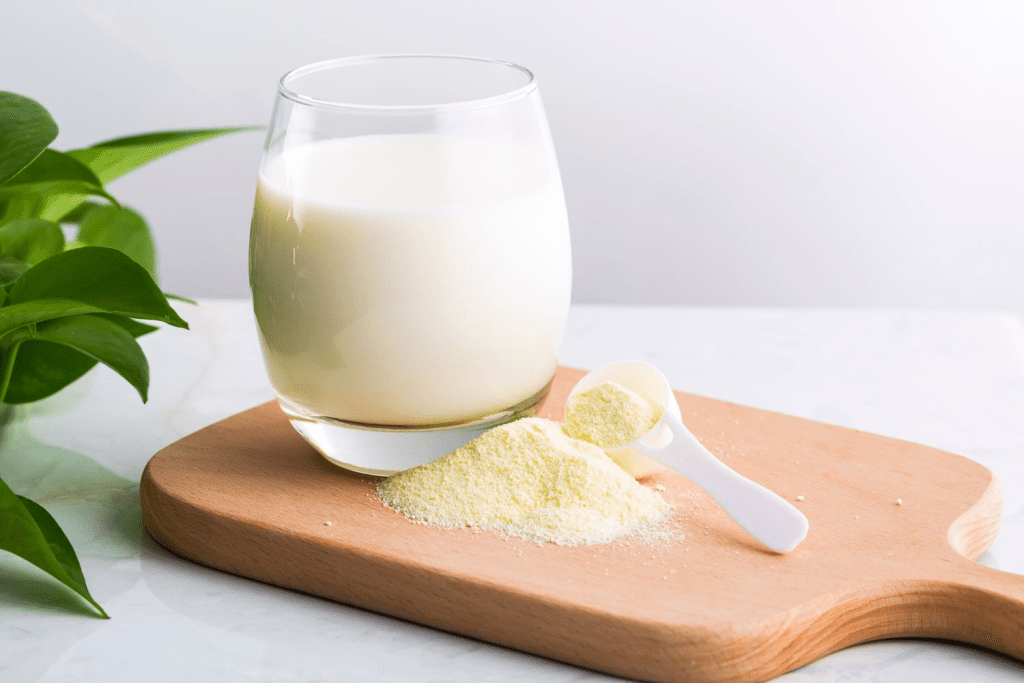
Powdered milk can last forever if kept dry and stored in an airtight container. It’s a practical substitute for fresh milk in cooking and baking, especially during emergencies when fresh milk may not be available.
12. White Vinegar: The All-Purpose Preserver
White vinegar is highly acidic, making it impossible for bacteria to grow in it. This pantry staple can last indefinitely and is useful not only in cooking but also for cleaning and preserving other foods.
13. Distilled Spirits: The Ageless Beverage
Distilled spirits like vodka, whiskey, and gin don’t spoil over time. Their high alcohol content prevents microbial growth, ensuring they last forever. However, their flavor profile may evolve with age.
14. Bicarbonate of Soda: The Multipurpose Miracle
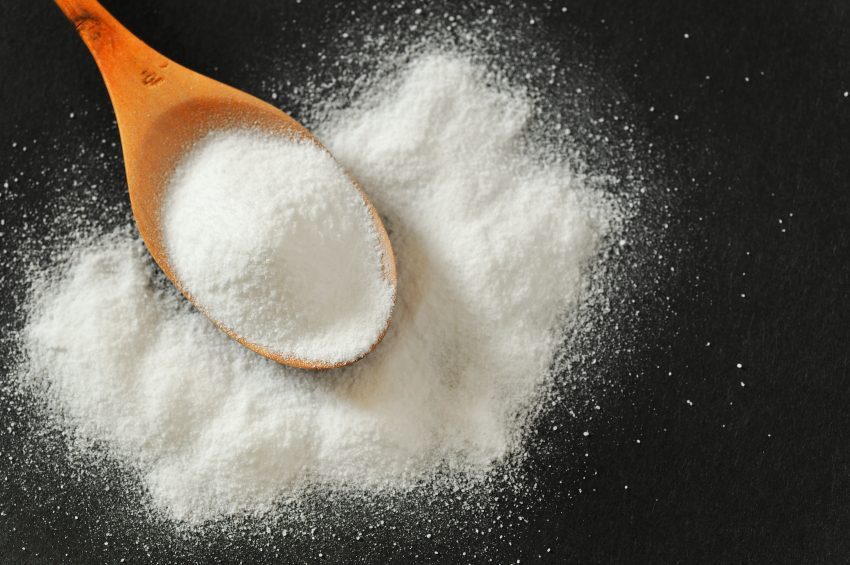
Commonly known as baking soda, bicarbonate of soda has a wide range of uses, from baking to cleaning. It doesn’t spoil, making it a useful item to store for the long term.
15. Whole Spices: Flavor that Lasts Forever
Whole spices, unlike their ground counterparts, retain their flavor and aroma for years. While they may lose potency over time, they won’t spoil. Store them in a cool, dry place for maximum longevity.
Conclusion: Making the Most of Your Canned Goods
The idea of food that never expires may seem too good to be true, but with the right knowledge and proper storage, you can build a pantry filled with items that will last indefinitely. From honey to dried beans and white rice, these long-lasting foods provide both nutrition and peace of mind. Stocking up on these staples ensures that you’re prepared for any situation, whether it’s an emergency or simply a matter of convenience. Keep them stored correctly, and they’ll be ready to serve you for years to come.
